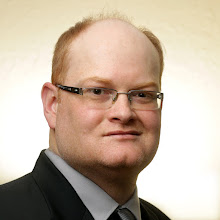"Alberta switched into a defense that they had never used before. In fact, it is not seen very much in college football in Canada. Essentially, they played a cover two, with seven under. What this means is that they had two safeties covering the deep zones and seven players covering the short zones, 10-15 yards deep. That is a lot of players underneath and it led to some confusing reads and for the quarterbacks and receivers. The Huskies like the short passing game and Alberta’s cover two slowed the Huskies down."It is worth wondering if you'll see more teams play similar coverage to try to cut down on the mega-offences of the past couple seasons. Two major trends on offence are the increasing prevalence of the spread offence, sometimes with a dual-threat quarterbacks who can run the ball and has the speed to get outside, like Calgary's Erik Glavic, Ottawa's Bradley Sinopoli and McMaster's Kyle Quinlan. Guelph's fifth-year QB Justin Dunk was kind of the prototype.
One adage of defensive coordinators as "add pressure, not coverage." However, if the quarterback fakes out a pass rusher, what good is that? Having nine defenders drop back can mean more players have the play in front of them when the quarterback tries to sprint to the outside on the now ubiquitous zone option. (One reason the old option offences which ruled the NCAA in the '70s and '80s petered out is teams just played soft zones to prevent giving up 70-yard runs.) It also means receivers have to run through a labyrinth of defenders on those intermediate crossing routes which are the bread and butter of spread passing teams such as No. 2-ranked Queen's, whose Dan Brannagan will in 99% likelihood become the most prolific passer in CIS history tomorrow.
Now, a few of you read the Chuck Klosterman book excerpt at ESPN where he noted the way football evolves is, "Progressive ideas are introduced by weirdos and mocked by the world, and then everybody else adopts and refines those ideas ten years later."
One of his examples is the late San Francisco 49ers coach Bill Walsh. The team "West Coast offense" actually had a pejorative origin — then-New York Giants coach Bill Parcells is said to have coined it after his Giants demolished Walsh's Niners 49-3 in a divisional playoff game in 1986-87, saying, "We sure stopped that West Coast offense." The implication was pretty clear — the Niners system, was milquetoast, not manly, just not right, even if by the year 2000 it had become commonplace (and then outdated).
Klosterman noted:
"... football is the most progressive game we have — it constantly innovates, it immediately embraces every new technology, and almost all the important thinking about the game is liberal. If football was a politician, it would be some kind of reverse libertarian: staunchly conservative on social issues, but freethinking on anything related to policy."You seldom if ever read anything about this that specifically applies to CIS football. It's hard enough for some editors to make room for any story, let alone one that satisfies such nerdish cravings. Nonetheless, teams which haven't been winning should be prizing creativity in a coach. A program such as Windsor should be trying to find the Canadian analog to Texas Tech's Mike Leach, wherever he is.

He exists in many forms up here. Will Gord Grace recognize it?
ReplyDelete